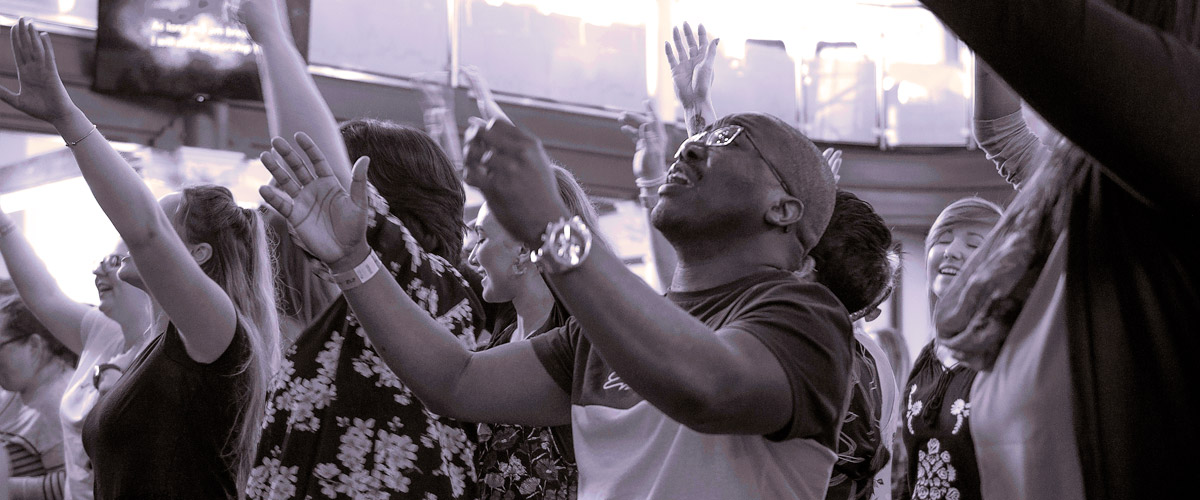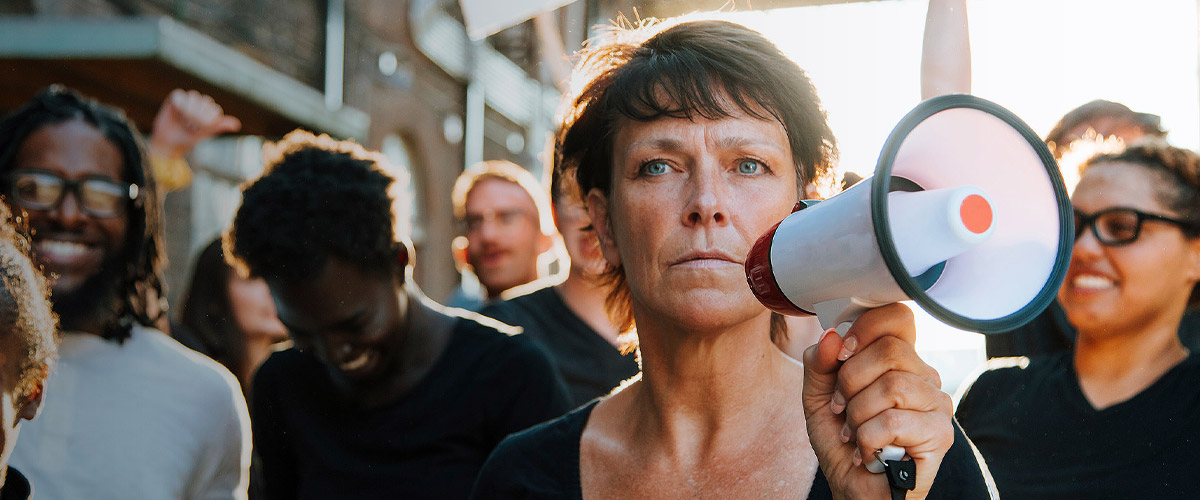Social Justice, Critical Theory and Biblical Justice
I have often witnessed Christians speaking past each other on the topic of ‘justice’, because there are different schools of thought that have parallel meanings, and may even use similar words, but which are actually polar opposites, ideologically. ‘White privilege’ is one of the phrases that gets bandied about. ‘Social justice’ is another activist movement that has become an all-encompassing banner, including Christians and non-Christians. It actually gained momentum, at least initially, through the tireless efforts of a few Marxists espousing the core values of Critical Theory.
Critical Theory
So what is Critical Theory? Critical Theory analyses the power balances within society and categorises people broadly as ‘oppressed’ or ‘oppressor’ based upon their racial, economic, gender or other social profile. Their intention is to liberate the oppressed and radically reshape the societal landscape.
The language of ‘equality’, ‘justice’ and ‘liberation’ employed by Critical Theory resonates deeply with many Christians because of the corresponding values championed by the Gospel. This is why, when some Christians have been outspokenly critical of the Social Justice Movement (and, by implication, Critical Theory), other Christians are astounded by the critic’s lack of sympathy for the ‘oppressed’. A recent example of this was when MacArthur and a few others produced a ‘Statement on Social Justice’[1].
It is therefore my intention with this article to delineate the similarities, but also the profound differences, between Critical Theory’s solution for ‘oppression’ and what Christ offers to the world. As Christians, we need to discern between having a worldly value system which gets clothed in Biblical language, and having a value system which is truly rooted in the Bible and reflects the same spirit as Christ.
Social Justice and Cultural Marxism
The ideological framework of Critical Theory originated with think-tanks from the Marxist school, who realised that Marxism needed a wholesale make-over.[2] Marxism had at its core the aim of ‘leveling the playing fields’ by uniting the Proletariat (the ‘have-nots’) in the common cause of over-throwing the control of the Bourgeoisie (the ‘haves’).
This radical ideology has resulted in several bloody revolutions (most notably in the Soviet Union and communist China). Wherever the Marxist ideal has been fully embraced, bloodshed has followed shortly thereafter. For example, in Mao’s ‘Great Leap Forward’, there were an estimated 45 million people killed in 4 years! (1958 – 1962)
After Marxism had revealed its true colours, it became untenable to retain the same overtly violent strategy for social transformation. In order to overthrow traditional Western values (influenced heavily by the Christian Worldview), it needed to reframe the struggle in more culturally relevant terms, and so the Proletariat vs Bourgeoisie terminology was reworked into the language of Oppressed vs Oppressor. This language was slowly appropriated to the struggle of cultural minorities.[3] It is this culturally adapted form of Marxism that we refer to as ‘Cultural Marxism’.
White Privilege
The rhetoric around ‘white privilege’[4] is actually only one slice of the bigger pie called Critical Theory. The same kind of critique is made of people’s ‘privilege’ on the basis of their gender, sexual orientation, family, race, culture and religion. My experience of Christians discussing ‘white privilege’ in South Africa, is that they are often unaware of the broader critique that Critical Theory brings to bear on societal norms. For example, I have seldom heard Christians challenging ‘heterosexual privilege’, but this is inconsistent if the assumptions of Critical Theory are accepted.
So, while previously disadvantaged South Africans, Christians and Cultural Marxists might all make reference to ‘white privilege’, are they all really speaking about the same thing? The danger is that while all three groups may use the phrase ‘white privilege’, they almost certainly do not come from the same ideological starting point or share the same underlying value system.
The Cultural Marxist Struggle Against Oppression
We will now take a look at the methods which ‘Social Justice Warriors’ employ to overturn ‘oppressive’ societal norms and compare them with the way of Christ.
Framing Majority Cultural Groups as Powerful and Oppressive
Firstly, every aspect that makes up an individual’s identity needs to be examined in order to determine if an aspect of his/her gender, sexual orientation, race, culture or religion might cause the individual (by their association with a larger, more dominant social grouping) to fall into the category of ‘oppressor’. This individual may be an ‘oppressor’ even without having malicious intentions, simply by being in a more dominant social group that has historically or is currently placing other minority groups at a disadvantage.
Regarding Individuals According to Their Group Identity
Cultural Marxism regards the identity of an individual as indistinguishable from their group identity. For example, in the relationship between a man and a woman, the man would be regarded as an oppressor based on his membership in the collective male group identity, not because of anything bad he has ever personally done against women.
Uniting Minority Cultural Groups in Resistance to ‘Oppressors’
Cultural Marxism seeks to influence and unite minority cultural groups in the effort to overthrow their ‘oppressors’ through cultural and political pressures (more details to follow). Cultural Marxism paints itself as a force of liberation for the downtrodden and marginalised, and uses the rhetoric of ‘equality’ and ‘fairness’ as its driving force.
Shaming
Once the ideological seeds of the ‘oppressor/oppressed’ narrative have taken root, the next step is labelling majority groups (or their ideologies) and using these labels for the purpose of shaming the ‘oppressors’. A few popular labels used for this purpose are: ‘patriarchy’, ‘white heterosexual male’, ‘fundamentalist’, ‘white privilege’, ‘homophobe’, ‘misogynist’, etc. The goal is to shift the balance of power by seizing the moral high ground. The hope is that the ‘oppressors’ will be shamed into conformity and will ultimately become ideological ‘allies’.[5]
Political Correctness
By controlling the language that is used in the public sphere (by making certain words taboo and targets of social shaming), the Cultural Marxist agenda is to control thought. A current example of this is the push in some nations to legislate which pronouns are appropriate to use in reference to transgender people.
Silencing of ‘Oppressors’
When certain opinions or voices are disagreeable to the ‘oppressed’ minority groups, the strategy is to silence the ‘oppressors’ by shaming, excluding and vilifying them. For example, men might be excluded from speaking on the topic of abortion because they are male and therefore ‘oppressors’ of women. This makes Cultural Marxist critiques of society immune from critique itself, because any criticism of its assertions are framed as ‘sympathy with the oppressor’.
The question now begging to be asked is how much this kind of thinking and practice has influenced Christians. Does this kind of behaviour exemplify the mission and the spirit of Christ?
How Much Have Christians ‘Bought Into’ Cultural Marxism?
The values and language of Cultural Marxism have pervaded Christian thought and this is evident in their language. Words like ‘woke’[6], ‘white privilege’, ‘patriarchy’, ‘oppressed’ and ‘oppressor’ are common in Christian conversation, and it is often difficult to distinguish their meaning in the Christian context from that of Cultural Marxism, because it is one and the same.
I have heard first-hand of white Christians making public demonstrations of remorse and even repentance, not for their own sins but for the sins of their ‘oppressor’ group. I have heard of a whole stream of students at a seminary, training to be pastors, who did a ‘walk of shame’ as an expression of their ‘white guilt’.
Possibly even more concerning for me are the questions young people ask about the Bible and their local church as a result of the influence of Cultural Marxism. ‘Is the Bible written by male ‘oppressors’? Can it be trusted? Is the Bible still relevant? What about my local church – can a leadership team composed of white ‘oppressors’ be trusted to lead me? Will I be able to reach my full spiritual potential in a church that is rife with ‘white privilege’?’ These questions reveal that the value system of Cultural Marxism has corrupted many a Christian’s ability to interpret their social context from the perspective of Christ.
Christ’s Solution to Oppression
It is easy to think of the issues we face in modern society as unique to our generation. Nothing could be further from the truth. The early church was initially Jewish (including Gentile converts) and it was born into the context of a harsh colonial occupation by the Romans. Later on, when Gentiles began to be added to their churches, there was intense racial tension between the Jews and Gentiles. (Acts 6:1 ,2
,2 , Acts 10:28
, Acts 10:28 , Romans 11) Added to this, there were many Christian slaves that attended church along with their slave masters!
, Romans 11) Added to this, there were many Christian slaves that attended church along with their slave masters!
Looking at Scripture then, we quickly discern a marked difference between Cultural Marxism’s solution to the problem of racism and that of Christ. While Cultural Marxism promotes the banding together of the ‘oppressed’ to resist their ‘oppressors’, Christ unites both oppressed and oppressors together in their redemption through the cross, and their divine adoption into the family of God. Consider this verse in Galatians 3:28 for example, ‘There is neither Jew nor Gentile, neither slave nor free, nor is there male and female, for you are all one in Christ Jesus.’
for example, ‘There is neither Jew nor Gentile, neither slave nor free, nor is there male and female, for you are all one in Christ Jesus.’
Scripture does not call for repentance by whole groups on the basis of their race or gender, but by individuals for specific sins they have personally committed.
It is not being ‘woke’ that brings about unity in the saints, but a divine work of the Spirit, which brings about true humility, forgiveness, harmony and love.
Furthermore, we are held accountable before God for our own actions. We are not condemned on the basis of our group identity (eg. male, white, heterosexual, etc). Scripture does not call for repentance by whole groups on the basis of their race or gender, but by individuals for specific sins they have personally committed. We do not see any evidence of Roman Christians, for example, demonstrating ‘Roman guilt’ for their part in oppressing the Jewish minority. We do not see Jews expressing ‘Jewish guilt’ for handing Christ over for execution. I would go even further and say that treating an individual on the basis of the sins of their group identity is the very definition of racism.
Power and Oppression
Critical Theory assumes that power is the same as oppression. Therefore, those who have power are ‘oppressors’. The Bible does not make this assumption. In fact, if this definition were true, then God is an oppressor!
Although the Bible and Cultural Marxism both regard injustice as a grave enemy, they mean very different things by it. The Bible condemns conscious acts of discrimination; Cultural Marxism sees injustice as something far more pervasive. They argue that ‘the powerful’ construct reality to favour themselves and maintain their power. By ‘reality’ they mean everything: the labour market, media, laws, education – these are all just ‘instruments for preserving the status quo’.[7] In this conception of reality, there is no possibility that someone might have what they do by virtue of their hard work, their creativity or any kind of merit. In fact, ‘conceptions of merit are invented by the powerful to reinforce their dominant position.’[8]
..the Bible speaks far more about how we can honour God when enduring abuse by authority than it does about overthrowing our oppressors.
The Bible warns against the abuse of power and sets forth the perfect example of self-sacrificial and servant-hearted leadership in Christ, but it also mandates various kinds of authority within society, church and family. Ultimately, those who abuse God-given authority will be accountable to God on judgement day! What I find insightful is that the Bible speaks far more about how we can honour God when enduring abuse by authority than it does about overthrowing our oppressors.[9]
In Scripture, righteousness and justice are synonyms[10]. To act ‘justly’ toward others is therefore the very definition of righteousness. As Christians, we must insist on God being our definition of righteousness. The critiques of Cultural Marxism are all premised on the fact that objective truth does not exist. Therefore my experience is my truth. If I feel oppressed, I am oppressed. The Christian worldview is premised on the fact that God’s Word reveals how the world truly is and how it truly should be. All my subjective experiences should be weighed against what God has revealed in Scripture.
If we allow the tenets of Critical Theory to substitute another definition of morality, then we are no longer living according to God’s law. Ultimately, the ‘oppressed/oppressor’ paradigm of Cultural Marxism posits itself as another way of defining morality. That may not immediately strike you as being very alarming, but consider this: according to the Critical Theory paradigm, a parent would be considered as an ‘oppressor’ and their children the ‘oppressed’ on the basis of the power dynamic between them![11]
My True Identity
As Christians, we need to have a Godly perspective on what truly defines me as a person; what constitutes my true identity. If we allow Critical Theory to promote things like gender, race, ethnicity, class and age as the primary categories for defining my identity, then I will never understand the true nature of the Kingdom.
‘From a Christian perspective, there are three far more fundamental categories of identity which critical theory ignores … The three categories I have in mind are: 1) human beings as the Imago Dei [made in the image of God], 2) human beings as sinners, and 3) human beings as united in Christ … Critical Theory depends crucially on differentiating identity groups into ‘oppressor’ and ‘oppressed.’ To suggest that all of us share the same fundamental identity marker is to undermine this dichotomy … The doctrine of the Imago Dei is radically subversive to racism, sexism, classism, but also to Critical Theory.‘[12]
Suffering is not the fault of a certain group of ‘oppressors’ – suffering is caused by the sin that resides in the heart of every human being.
By thinking of ourselves as ‘oppressed’ rather than ‘oppressors’, we inevitably downplay our own sinfulness. It has always been the strategy of Satan to exaggerate the ‘speck’ in another’s eye and cause us to ignore the ‘plank’ in our own eye. Thinking of society in terms of ‘oppressors’ and ‘oppressed’ ignores one of the most fundamental facts about humanity: that we are all sinners and that it was required of Christ to die for the sins of every living person. Suffering is not the fault of a certain group of ‘oppressors’ – suffering is caused by the sin that resides in the heart of every human being. Every person is capable and culpable of evil, regardless of their social identity.
Being a member of a ‘privileged’ social category may give an individual more opportunity to sin, but it is not sin in itself. If it were otherwise, then we would have to conclude that Christ, as a male, is an ‘oppressor’.
Conclusion
It is natural for Christians to care about justice, because it is a fundamental attribute of God’s nature. My intention with this article is to bring attention to the fact that many Christians have been duped into a value system that uses language of ‘justice’ and ‘equality’, but actually fosters more divisions and strife than it heals.
More than anything, Critical Theory creates a very cynical outlook on the power dynamics within society. When racial categories have been categorised as ‘oppressors’, it fosters a culture of deep suspicion. And this is my major concern with the modern discourse on justice – if we make people culpable of ‘oppression’ by virtue of their group identity and not on the basis of their personal actions, the waters get muddy and Satan wins.
What I mean is that Cultural Marxism doesn’t have the same goal in mind as Christ. It is not aiming for a harmonious, humble, self-sacrificial, peaceful, loving community in which we celebrate each other’s successes. Instead, it accentuates divisions along racial and gender lines. It is obsessed with power. It is suspicious, envious, resentful, violent and self-centred. Marxism masquerades as compassion, but it inevitably ends in brutality. The fact that Marxist ideologies are not regarded with loathing after all the atrocities they have produced is one of the great failures of modern society. It is inexcusable.
I may be a disabled, white male, born into a poor family and poorly educated. So am I an oppressor or am I oppressed?
Furthermore, Cultural Marxism is overly simplistic, and it seems to me that this is in some way malicious. What I mean is, if we want to speak about what gives people an advantage over others, why stop at race and gender? Why not speak about intellectual privilege, age privilege, inherited wealth privilege, beauty privilege? Why pick on the identity markers that are already sources of division and sensitivity and formulate an ideology which justifies resentment? There are so many factors that put me at an advantage and so many others at a disadvantage, so why speak of my social identity in over-simplified terms, as if that sealed my fate in life? For example, I may be a disabled, white male, born into a poor family and poorly educated. So am I an oppressor or am I oppressed?
If we are to know how to live righteously in the world, we need to be wary of worldly ideologies, such as Critical Theory, clothed in Biblical language, and rather let God define the righteousness and justice that He requires from us.
The most revealing quotation I have come across regarding the fundamental difference between the way of the Kingdom and the rhetoric of ‘white privilege’ comes from the lips of a chief proponent of Cultural Marxism, ‘Lukács argued that the Christian cultural institutions of the West were oppressive, intolerant, and had ‘blinded’ people ‘to their true class interests’.’[13]
Christ unites people of every race and gender by rebirth into a shared identity as children of God.
Karl Marx himself is famously quoted as saying that ‘religion is the opiate of the masses’. Both are saying the same thing: that Christ’s kingdom has a way of blinding us to our class differences. They saw this as a bad thing, but this is actually what is so beautiful about the kingdom. The best that Cultural Marxism can achieve is to unite those who consider themselves ‘oppressed’ in a struggle to wrest power from the ‘dominant classes’. Christ unites people of every race and gender by rebirth into a shared identity as children of God.
Truth be told, Marxism and Christianity are about as polar opposite as it gets. Christ became a sacrifice in order to win the freedom of those oppressed by sin. Marx stirred up resentment in the heart of the ‘oppressed’ and turned them into heartless oppressors. As Christians, we need to immerse ourselves in the true Word and Spirit of Christ, so that what rules in our minds is the Kingdom of God and not the spirit of the age, which only breeds more destruction.
References:
- Daniel A. Farber; Suzanna Sherry. Beyond All Reason: The Radical Assault on Truth in American Law
- https://www.youtube.com/watch?v=ofmuCXRMoSA
- https://www.reasonablefaith.org/media/reasonable-faith-podcast/the-dangers-of-critical-theory/#_ftn1
- https://statementonsocialjustice.com/
- https://shenviapologetics.wordpress.com/a-long-review-of-race-class-and-gender-part-1/
- http://bluecollarsaints.org/2017/09/09/736-2/
- https://shenviapologetics.wordpress.com/christianity-and-social-justice/
- https://shenviapologetics.wordpress.com/recognizing-critical-theory-and-why-it-matters/
- https://theecclesialcalvinist.wordpress.com/2017/08/31/critical-theory-and-the-unity-of-the-church/
- https://en.wikipedia.org/wiki/Critical_theory
- https://www.washingtonpost.com/news/volokh-conspiracy/wp/2016/08/03/giving-historys-greatest-mass-murderer-his-due/?noredirect=on&utm_term=.3b105a9cdc84
[1] https://statementonsocialjustice.com/
[2] Some influential thinkers in this regard were: Georg Lukács, Max Horkheimer, Theodor W. Adorno, Walter Benjamin, Herbert Marcuse, Erich Fromm, Jürgen Habermas, Derrida, Foucault
[3] For more information of this ideological process, do some research into the Frankfurt School.
[4] The benefits that accrue to a person based upon them being white and therefore a member of the ‘dominant race’.
[5] This is what is commonly referred to as “Woke”.
[6] This word is used to describe an awareness of social justice issues viewed through the lens of Critical Theory.
[7] Daniel A. Farber;Suzanna Sherry. Beyond All Reason: The Radical Assault on Truth in American Law (Kindle Location 276).
[8] Daniel A. Farber;Suzanna Sherry. Beyond All Reason: The Radical Assault on Truth in American Law (Kindle Locations 372-373). Kindle Edition.
[9] Here is a sample selection: Mathew 5:38-41, Luke 6:27 ,28
,28 , Luke 23:34
, Luke 23:34 , Acts 7:60
, Acts 7:60 , Romans 12:14
, Romans 12:14 , Romans 12:20
, Romans 12:20 , 1 Thessalonians 5:15
, 1 Thessalonians 5:15 , Colossians 3:22
, Colossians 3:22 , Ephesians 6:5
, Ephesians 6:5 , Titus 2:9
, Titus 2:9 , 1 Peter 2:18
, 1 Peter 2:18 , 1 Peter 3:8-17
, 1 Peter 3:8-17 .
.
[10] The Greek word for both is dikaiosuné.
[11] This is referred to in their literature as Ageism.
[12] https://shenviapologetics.wordpress.com/a-long-review-of-race-class-and-gender-part-4/
[13] Bill Lind, The Origins of Political Correctness quoted from http://bluecollarsaints.org/2017/09/09/736-2/










